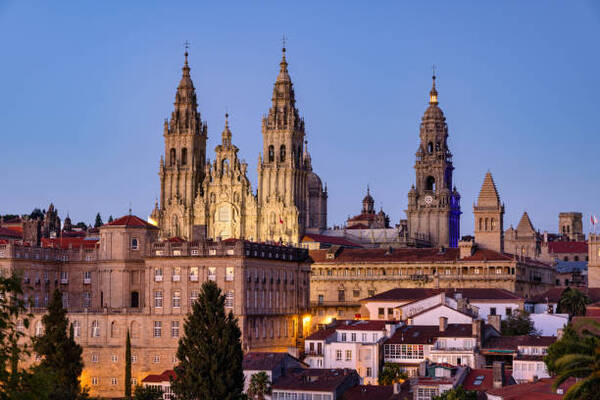Thursday, July 10, 2025
One of the oldest cities in Spain, Santiago de Compostela has started a radical new anti-tourism crusade to stem the tidal wave of visitor numbers the locals say is eroding their way of life. Radical measures to restrain the growth of souvenir shops and gaming dens were initiated by the city authorities after it was revealed businesses to cater to tourists now outnumber those to cater to locals. The radical initiative is in response to burgeoning tensions, with locals saying tourism has been driving the cost of buildings up, wearing down the cultural heritage, and threatening to lead to unrest and protests unless radical reforms were carried out immediately.
Santiago de Compostela Imposes Stricter Regulations over Tourist Businesses and Betting Firms to Combat Overtourism and Protect Neighborhood Culture
The historic northwestern Spanish city of Santiago de Compostela is aggressively doing its bit to address the surging ills of overtourism. The local authorities took the bold policy initiative to put the breaks on the proliferation of the souvenir shops and gambling dens that have come to dominate the commercial landscape in the city. The bold initiative comes in the aftermath of growing concern over the local cultural heritage and the way of life in the city being overwhelmed by its tourism-led economy.
New figures reveal tourist shops now outnumber local shops, and the situation has caused alarm at the city council. Once famous for its community atmosphere, Santiago’s historic centre once had independently owned shops such as bakeries, bookshops, butchers, and pharmacies. These were the backbone of the everyday life for locals and part of the city’s character.
However, the tourism boom over the past two decades has dramatically altered this balance. Back in 1999, approximately 488,000 tourists visited Santiago de Compostela. Fast forward to 2023, and the city experienced a dramatic rise, drawing close to 926,000 visitors—nearly twice the number from two decades earlier. As the volume of visitors has grown, so too has the number of tourist-oriented businesses, pushing out many local establishments and reshaping the city’s economic priorities. Today, businesses focused on serving residents account for only about one-third of all shops in the city center.
In response, the city council has enacted new regulations to restrict the openings of additional souvenir shops. By its calculations, officials believe excessive growth in tourism-linked retail has caused local traders to have to fight increasingly hard, threatening the authenticity and the variety of the commercial centre in Santiago. The plan is part of broader moves to create balance in the retail blend in the city and to make local people feel they continue to belong to the community they live in.
The latest restrictions do not stop at souvenir shops. The municipality also wants to block the creation of fresh gambling houses, yet another business authorities argue doesn’t do the local population any good except to attract dozens of non-residents. By inhibiting the spread of these type of commercial enterprises, the city officials hope to pave the way for a more diversified and stable urban economy more aligned to the population’s needs.
Santiago de Compostela has already taken earlier steps to address overtourism. Holiday rentals for short-term lets have been banned in the historic old centre, where the pressures of seasonal holiday lets were driving up residential costs and pricing out local families from the area. The latest set of restrictions follows suit, in the same direction of trying to preserve the social nature of the city while allowing tourism to thrive in a more responsible and balanced manner.
Resident concerns continue to increase in number. Residents increasingly point to the rise in tourism to account for rising property costs and the gradual loss of the cultural identity of the city. The tourists themselves have come to be emblematic of the double-edged phenomenon of bringing economic opportunity on the one hand yet endangering communities and deep-seated traditions on the other. The locals’ backlash is not limited to Santiago. Across Spain, cities and towns grappling with the same pressures have already begun to implement steps to mitigate the impact of tourism.
In the wake of these tensions, the Foreign Office has issued a travelers’ advisory for British tourists traveling to Spain during the summer. The advisory makes specific mention of the potential for public protests because of overtourism and reminds travelers of the risk of unrest in some areas. Travelers are advised to stay informed, listen to local authorities, and stay vigilant in the face of unrest. The latest efforts by Santiago de Compostela reflect the broader Spanish trend of community-focused and sustainable tourism policy. In the midst of the ongoing war against overtourism in the entire nation, the forward-looking initiative by the city can be cited as an exemplar by the other cities to balance the needs of the global tourism economy with heritage preservation.
